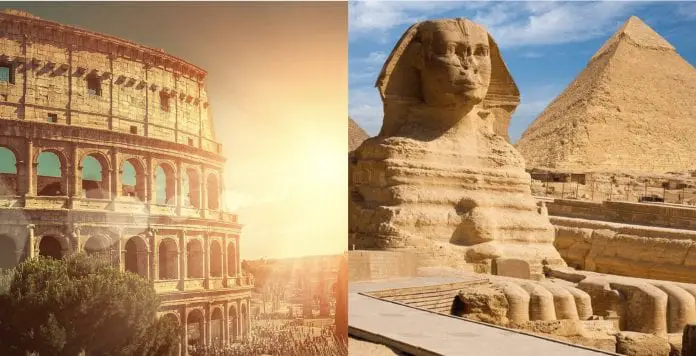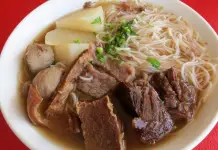Life as we know it today wasn’t always this way. Long, long ago, before modern society existed, there were several ancient civilisations. According to dictionary.com, a civilisation is “the stage of human social and cultural development and organisation that is considered most advanced”. Some important characteristics of a civilisation include cities, government, art, writing, religion and social structure. Many things we have today stem from these ancient civilisations, so without further ado, let’s check them out!
1) Ancient Egyptian Civilisation
Estimated start time: 3100 B.C.
One of the oldest and culturally rich civilisations, the anicent Egyptian civilisation is best known for none other than its pyramids and the Sphinx. The civilisation started with the political unification of Upper and Lower Egypt under Menes, and its success is partly owed to the ability to adapt to the conditions of the Nile River. Besides pyramids and the Sphinx, the ancient Egyptian civilisation is also known for its mathematics system, medicine and the earliest known peace treaty.

Original Location: Banks of the Nile
Current Location: Egypt
2) Roman Civilisation
Estimated start time (founding of Rome): 753 B.C.
The Roman civilisation was one of the most powerful ancient civilisations, and produced some of the greatest emperors in human history, such as Julius Caesar. During its prime, it even had all present-day Mediterranean countries under its rule. It is also often grouped together with the ancient Greek civilisation, and together they are known as the Greco-Roman world. It also contributed to just about everything, including modern language, religion, society, technology and politics.
/https:/public-media.si-cdn.com/filer/dc/e5/dce58054-38a1-436f-9554-61d3184eec3b/aabr003619.jpg)
Original Location: Rome
Current Location: Rome
3) Inca Civilisation
Estimated start time: 1438 A.D.
The Incans were spectacular builders, building sites such as Macchu Picchu and the city of Cusco. The last of the Andean civilisations, the Incans were successful due to their adaptation of natural landscapes, which they employed terracing, highways and mountaintop settlements. They were also devout followers of the Sun God Inti, and the king was referred to as “Sapa Inca”, which means “child of the sun”. Last but not least, the Inca civilisation is also one out of five civilisations deemed by scholars to be “pristine”, which is indigenous and not derived from other civilisations.
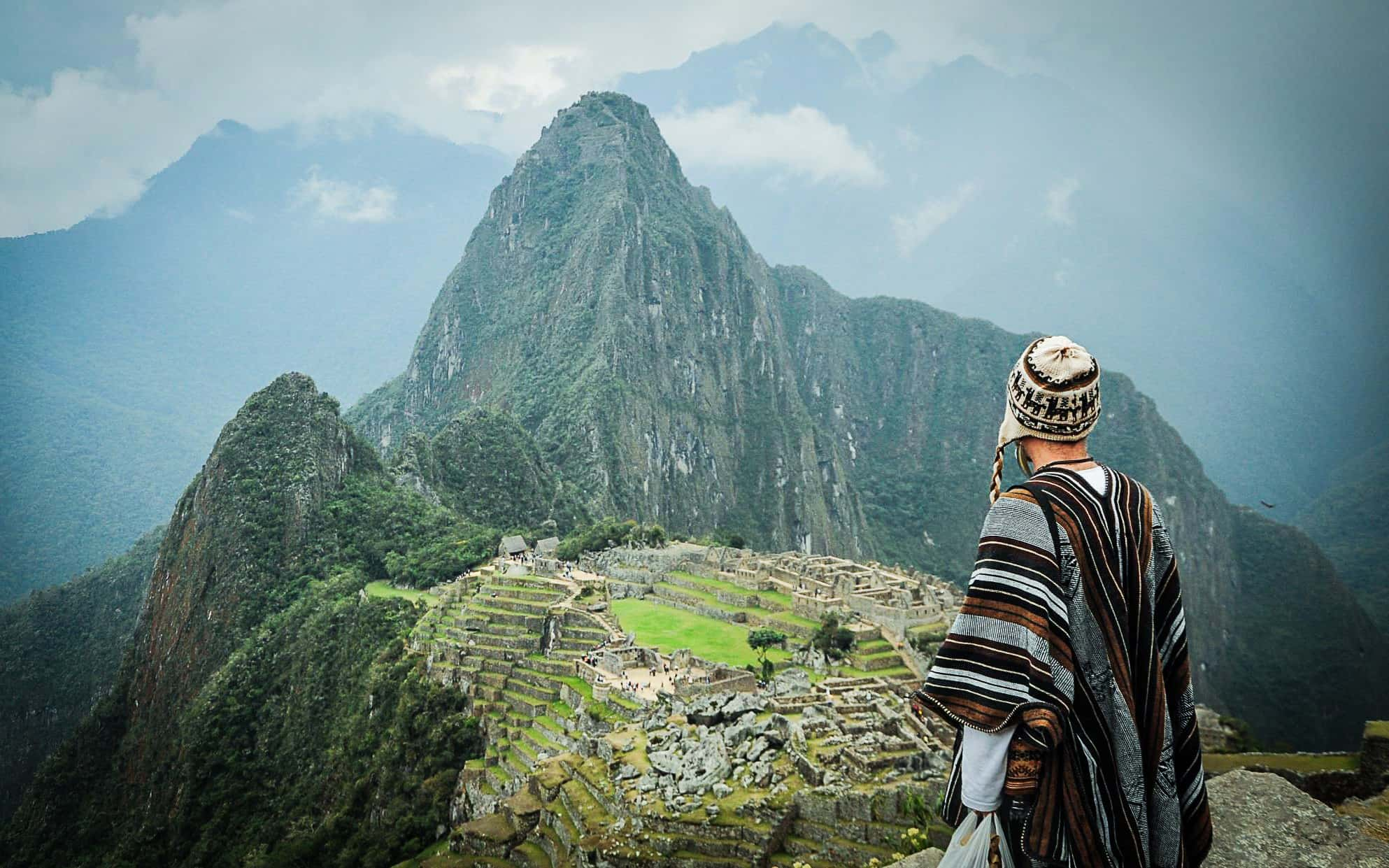
Original Location: Peru
Current Location: Ecuador, Peru & Chile
4) Mesopotamian Civilisation
Estimated start time: 3500 B.C.
In ancient Greek, “Mesopotamia” means “the land between rivers”, fitting as it was situated along the Tigris-Euphrates river system. The first known civilisation in the world, Mesopotamia was the site of the earliest Neolithic Revolution developments, dating back to about 10,000 B.C. As one of the “cradles of civilisation”, the Mesopotamian civilisation gave us “cities”, invented writing, domesticated animals and plants and invented the wheel among others. In fact, Orientalist Samuel Noah Kramer has a list of 39 “firsts” that originated there.

Original Location: Along the Tigris-Euphrates river system
Current Location: Iraq, Syria, Turkey
5) Chinese Civilisation
Estimated start time: 2070 B.C.
Taking into account all the dynasties that ever existed, the Chinese civilisation is one of the most diverse. Some state that it all started with the Shang dynasty in 1600 B.C., whereas some argue that a Xia dynasty started it all in 2070 B.C. Whether it started with the Xia or Shang dynasty, the last dynasty, the Qing dynasty, lasted till 1912 A.D., till it was toppled by the Xinhai Revolution. Thanks to the Chinese civilisation, the invention of paper and silk came about.

Original Location: Yellow River & Yangtze region
Current Location: China
6) Ancient Greek Civilisation
Estimated start time: 800 B.C.
The ancient Greek civilisation gave us concepts of democracy, the Senate and of course, the Olympic games. In fact, the traditional date for the very first Olympic games is stated as 776 B.C. One of the most influential civilisations, the ancient Greeks laid down foundations for modern geometry, biology and physics. They also had a strong influence on the Roman Empire, and some see the Roman era as a continuation of this civilisation. Many believe that this is the founding culture of Western civilisation as we know it, through the Romans.
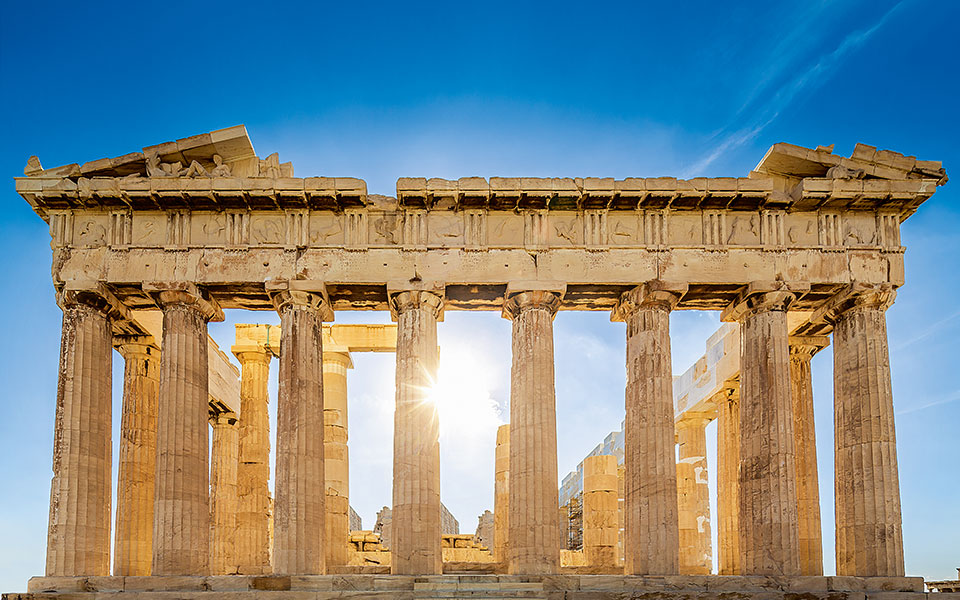
Original Location: Italy, Sicily, North Africa, as far west as France
Current Location: Greece
7) Mayan Civilisation
Estimated start time: 2600 B.C.
To this date, there is still not much known about the Mayans, apart from the calendar they gave us. Besides having a deep understanding of astronomy, they are also culturally rich. In fact, they built pyramids too, and many of them are larger than the Egyptians’. Though the Mayans had a sudden decline which no one can explain, they did have cultural developments such as complex societies, agriculture, cities, architecture, writing and a calendrical system. Of course, their calendar did end in 2012, but here we are, still!
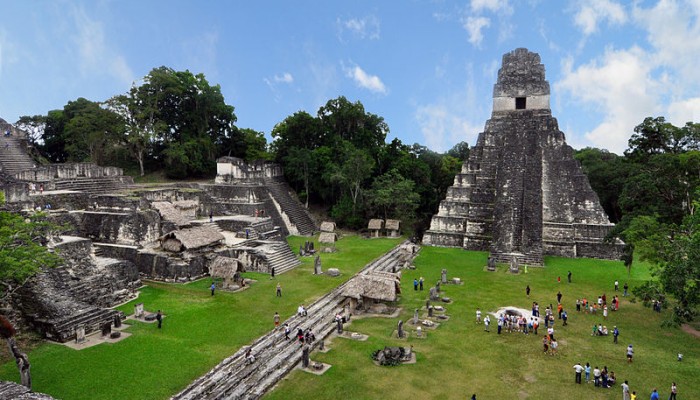
Original Location: Around present-day Yucatan
Current Location: Yucatan, Quintana Roo, Campeche, Tabasco, Guatemala, Belize, El Salvador, Honduras
8) Aztec Civilisation
Estimated start time: 1428 A.D.
The rise of the Aztecs was within a century of the fall of the Mayans, and the Aztec Empire was also known as the Triple Alliance. The alliance was between three Nahua altepetl city-states: Mexico-Tenochtitlan, Texcoco and Tlacopan. They even had their own language called Nahuatl. The Aztec emperor did not rule each city or state directly, and had local governments remaining in place to take care of everything. The Aztec civilisation is the most well-documented Mesoamerican civilisation, with records on archaeology, native books and even detailed accounts from their Spanish conquerors.
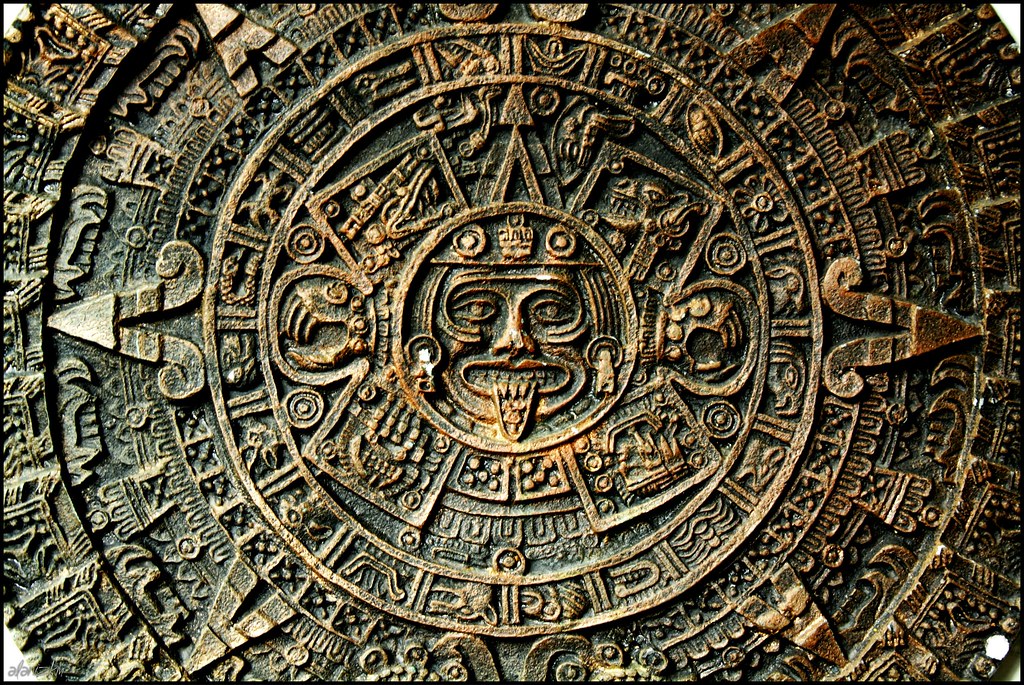
Original Location: Southcentral region of pre-Columbian Mexico
Current Location: Mexico


